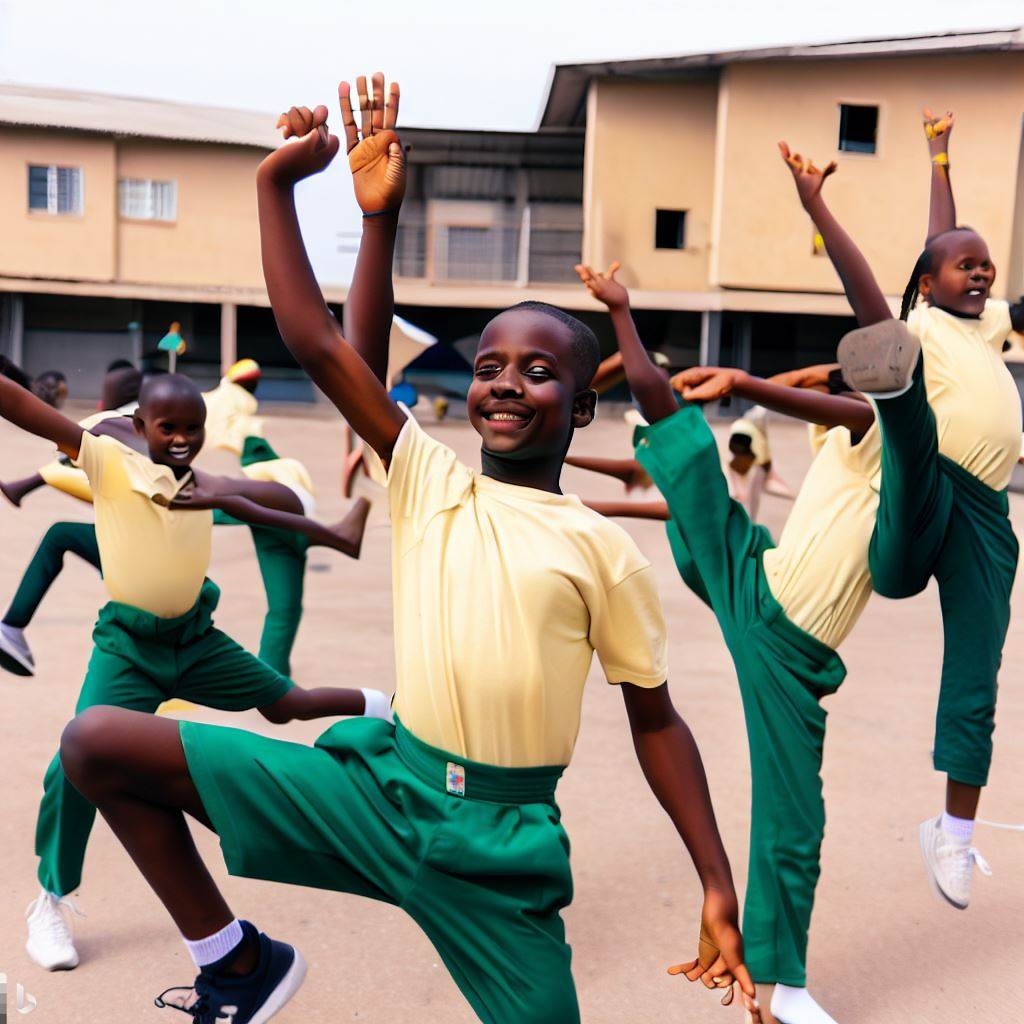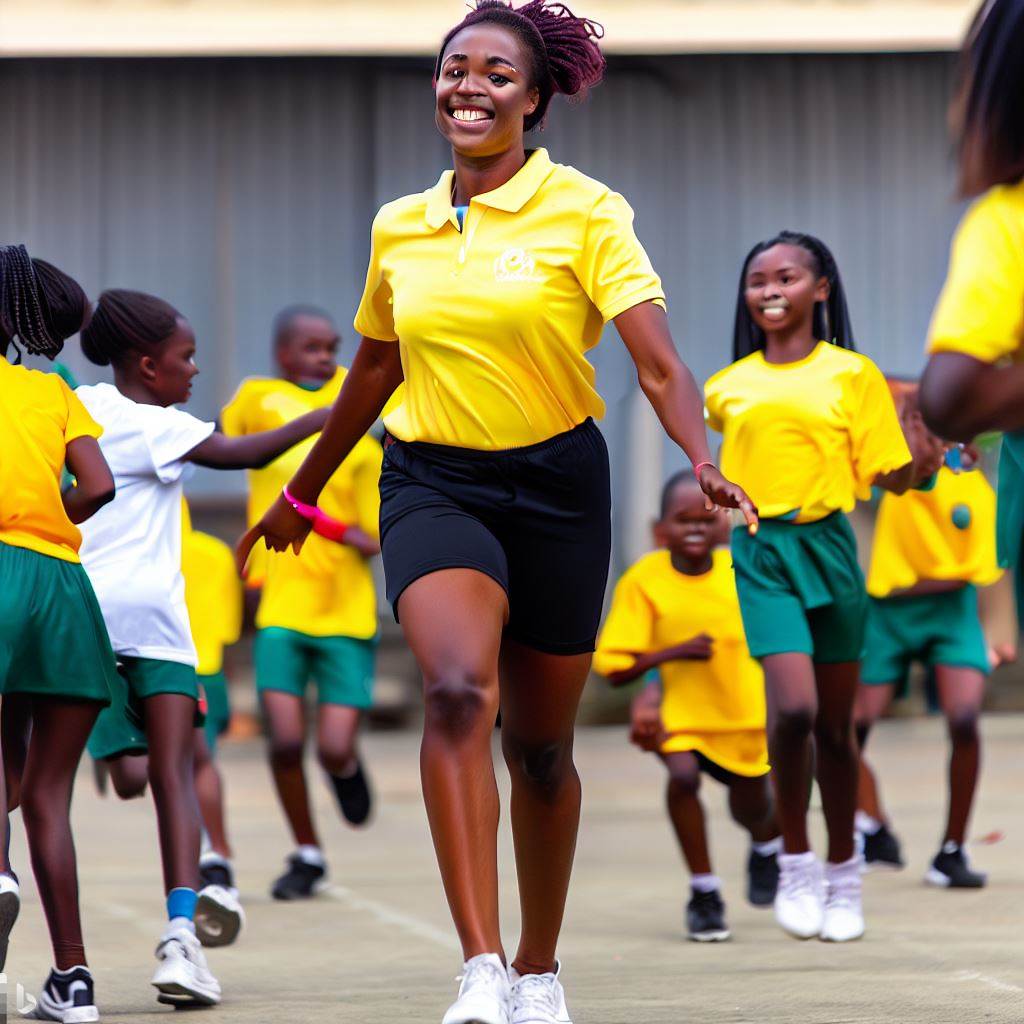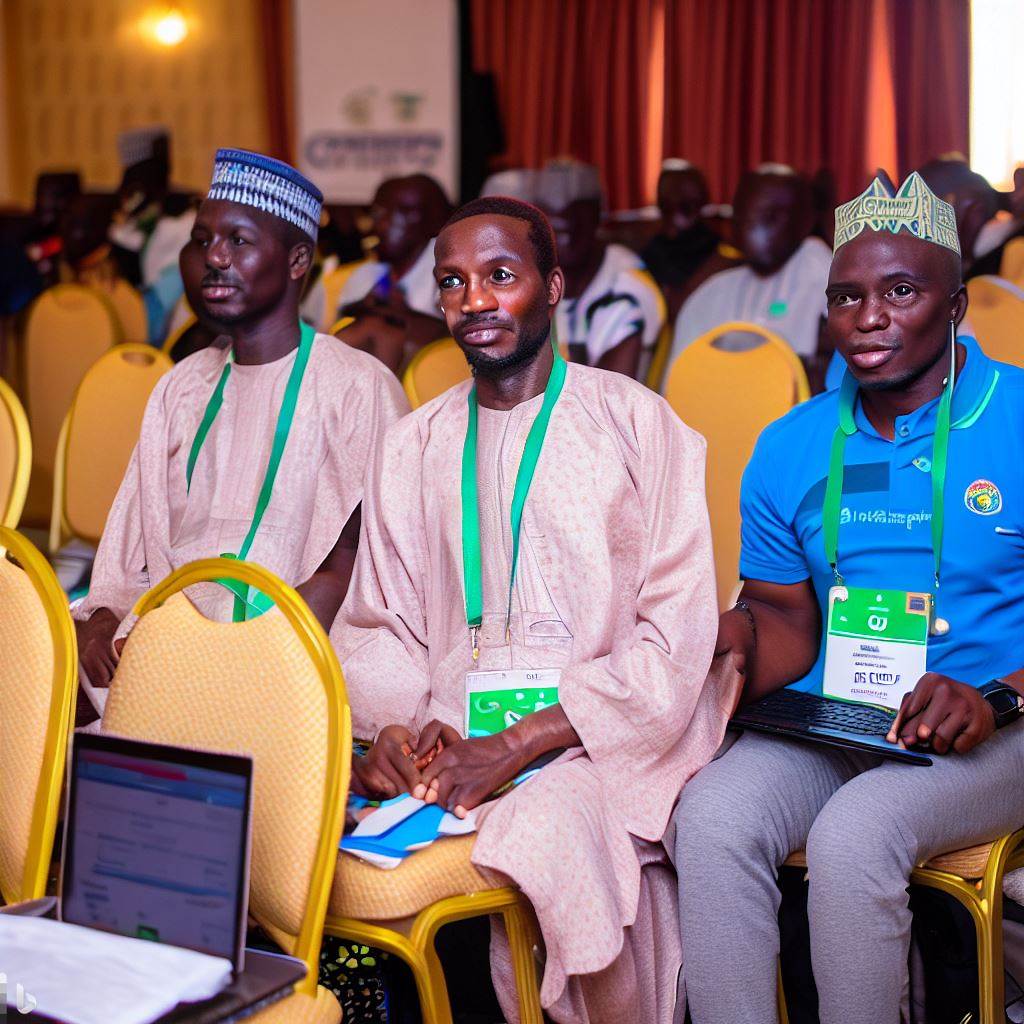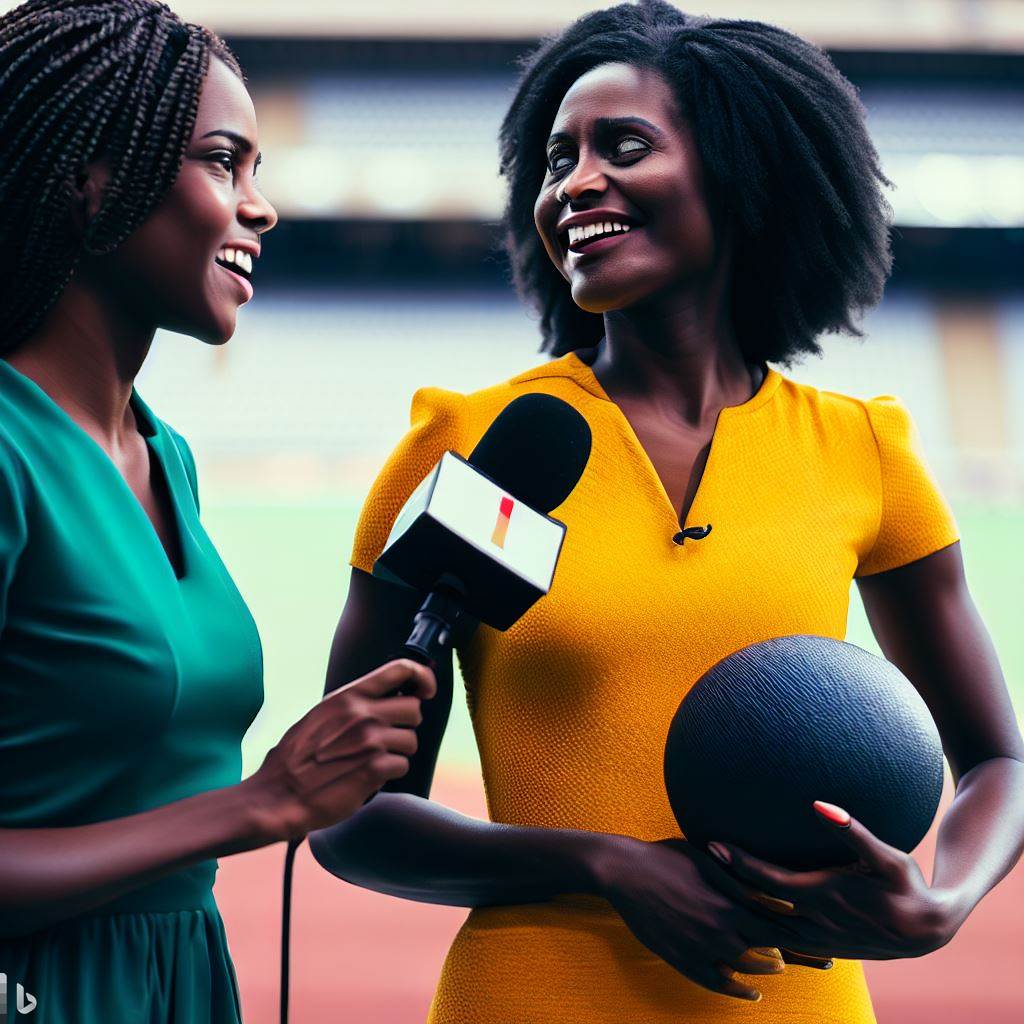Introduction
The purpose of this article is to shed light on the importance of PE instructor teaching sports in Nigeria.
Physical education plays a crucial role in schools by promoting a healthy lifestyle, enhancing fitness, and fostering overall well-being among students.
Sports culture in Nigeria is deeply rooted, with a rich history of achievements in various disciplines like soccer, athletics, and boxing.
Physical education (PE) holds a vital place in the Nigerian education system.
It goes beyond classroom learning and focuses on fostering overall physical fitness, mental well-being, and social skills among students.
The sports culture in Nigeria is diverse and vibrant. It is deeply intertwined with the country’s rich history, traditions, and national identity.
Nigerian athletes have consistently achieved success on the international stage, particularly in soccer, athletics, and boxing.
In this article, I aim to highlight the significance of PE instructor teaching sports in Nigeria.
By sharing my experiences and insights, I hope to emphasize the positive impact that sports education can have on students’ physical, mental, and social development.
Through regular physical activity and engagement in sports, students can improve their cardiovascular health, develop strength, agility, and coordination, and enhance their overall fitness levels.
PE classes provide an avenue for students to develop crucial life skills such as teamwork, leadership, discipline, and perseverance.
I firmly believe that by integrating sports into the curriculum and providing quality PE instruction, we can shape well-rounded individuals who are physically active, mentally resilient, and socially adept.
Join me on this journey as we explore the importance of teaching sports in Nigeria and its long-lasting benefits for our students’ holistic development.
Challenges faced by PE instructors in Nigeria
Lack of resources and facilities
- The scarcity of necessary equipment hinder the effective teaching of sports.
- Inadequate sports fields and facilities limits students’ practical experience.
- The unavailability of sporting gear restricts students’ ability to fully participate in sports activities.
- The lack of access to proper sports infrastructure affects the overall quality of physical education.
Limited funding for sports programs
- Inadequate financial support from the government hampers the development of sports education.
- The insufficient budget allocated to physical education limits the scope of sports programs in schools.
Insufficient training and professional development opportunities
These challenges pose significant hurdles for PE instructor teaching sports in Nigeria, hindering the development of sports education.
It is crucial for the government and educational institutions to address these issues to improve the teaching of sports in Nigeria.
By providing adequate resources, including equipment, sports fields, and facilities, PE instructors can deliver more engaging and effective physical education classes.
Additionally, increasing funding for sports programs will enable schools to invest in qualified coaches and necessary equipment, enhancing the overall quality of sports education.
Moreover, offering sufficient training and professional development opportunities to instructors will ensure they have the knowledge and skills needed to deliver comprehensive sports instruction.
By actively addressing these challenges, Nigeria can develop a robust and effective physical education system that promotes a healthy and active lifestyle among its youth.
Read: Career Path: Sports Information Director to Media Manager
Strategies for teaching sports effectively in Nigeria
Creativity and improvisation in resource-scarce environments
- In Nigeria, teaching sports can be challenging due to limited resources.
- However, with creativity and improvisation, instructors can overcome these obstacles.
- For example, instead of using expensive equipment, instructors can teach students how to make their own using local materials.
- This promotes problem-solving skills, resourcefulness, and critical thinking among students.
- By encouraging creativity, instructors can make sports engaging and accessible for all students.
Incorporating local sports and games into the curriculum
- Nigeria has a rich cultural heritage with a variety of traditional sports and games.
- Instructors can incorporate these local sports into the curriculum to make it more relatable for students.
- This not only preserves the country’s cultural identity but also increases students’ interest in sports.
- By playing these traditional games, students can learn about teamwork, coordination, and fair play.
- It also fosters a sense of pride and appreciation for their own cultural heritage.
Promoting inclusivity and gender equality in sports education
- In Nigeria, sports education should be inclusive and promote gender equality.
- Instructors should ensure that both girls and boys have equal opportunities to participate in sports.
- This can be achieved by creating a safe and supportive environment where everyone feels included.
- Instructors should encourage girls to participate in sports and challenge gender stereotypes.
- By promoting inclusiveness and gender equality, sports education can empower students and promote social cohesion.
Most importantly, being a PE instructor teaching sports effectively in Nigeria requires strategies that foster creativity, incorporate local sports, and promote inclusivity and gender equality.
By embracing these approaches, instructors can make sports education engaging, accessible, and culturally relevant for all students.
Read: The Impact of Sports Information Directors on Nigerian Sports
Benefits of sports education for Nigerian students
Enhancing physical fitness and overall health
- Sports education promotes regular physical activity among Nigerian students.
- Engaging in sports helps improve cardiovascular health and reduces the risk of diseases.
- Participating in sports activities helps maintain a healthy body weight and prevents obesity.
- Regular exercise through sports enhances muscle strength, endurance, and flexibility.
- Sports education contributes to overall physical well-being and improves students’ energy levels and mood.
Developing life skills and character traits
- Participating in sports teaches Nigerian students important life skills such as perseverance and resilience.
- Through sports, students learn to set goals, work hard, and overcome challenges.
- Sports education instills discipline and self-control in students, leading to improved focus and concentration.
- Students learn to manage their time effectively and prioritize tasks through balancing sports and academics.
- Sports activities teach students the value of fair play, integrity, and respecting rules.
- Students develop a strong work ethic, learning to give their best in both sports and academics.
Fostering teamwork, discipline, and leadership abilities
- Engaging in team sports helps students develop essential teamwork and collaboration skills.
- Students learn to communicate effectively, coordinate with teammates, and work towards a common goal.
- Sports education teaches Nigerian students the importance of respecting authority and following instructions.
- Through sports, students acquire leadership qualities and learn to take initiative and responsibility.
- Students in leadership positions gain valuable experience in decision-making and problem-solving.
- Sports activities provide opportunities for students to showcase their leadership abilities and inspire others.
Basically, sports education plays a vital role in the development of Nigerian students.
By participating in sports activities, students can enhance their physical fitness, improve overall health, and develop important life skills and character traits.
Additionally, sports education fosters teamwork, discipline, and leadership abilities, which are crucial for success in various aspects of life.
Therefore, it is essential to prioritize and promote sports education in Nigerian schools to ensure the holistic development of students.
Read: Job Outlook for Physical Education Teachers in Nigeria
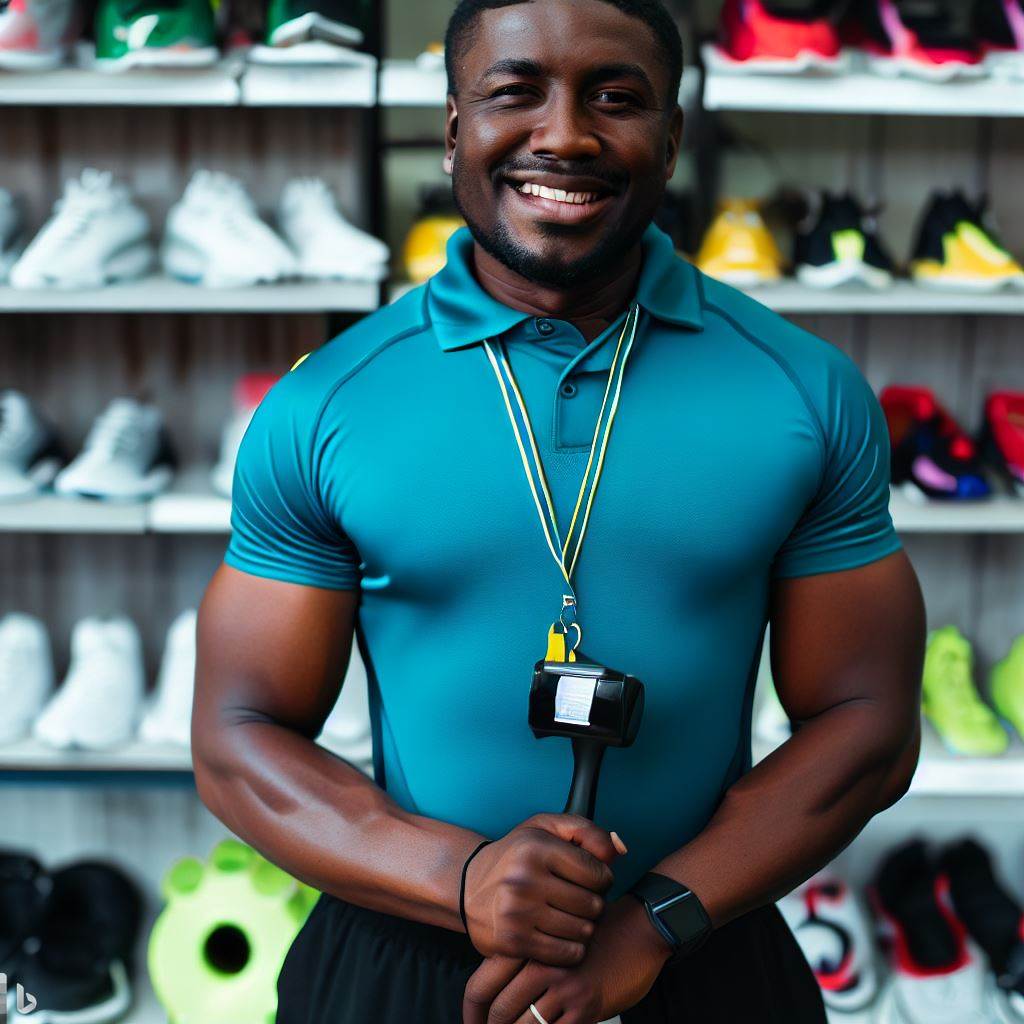
Delve into the Subject: Ethics in Sports: The Athletic Director’s Role in Nigeria
Success stories and best practices from PE instructors in Nigeria
Innovative approaches and impactful projects
In this section, we will explore the success stories and best practices of Physical Education (PE) instructors in Nigeria.
These instructors have implemented innovative approaches and impactful projects to enhance sports education in the country.
Innovative teaching methods
PE instructors in Nigeria have adopted creative teaching methods to engage students, such as gamification, virtual reality, and interactive technology.
By making sports education enjoyable and exciting, they inspire students to actively participate and learn.
Project-based learning
PE instructors have also incorporated project-based learning in their classes.
Students are given the opportunity to work on real-world sports projects, such as organizing tournaments, designing fitness programs, or analyzing sports performance.
This hands-on approach instills practical skills and boosts students’ confidence.
Community involvement
To promote sports education beyond the classroom, PE instructors in Nigeria actively involve the community.
They organize sports events, collaborate with local sports clubs, and invite professional athletes as guest speakers.
These initiatives expose students to a wider sports network and encourage them to pursue sports careers.
Integration of technology
PE instructors leverage technology to enhance students’ learning experiences.
They use video analysis software to analyze sports techniques, track progress, and provide constructive feedback.
Virtual coaching platforms enable continuous support and guidance, even outside school hours.
Emotional and social benefits
Best practices from PE instructors in Nigeria focus not only on physical development but also on emotional and social skills.
Through sports, students learn teamwork, discipline, resilience, and leadership. These skills are transferable to various aspects of their lives, shaping them into well-rounded individuals.
Female empowerment
PE instructors in Nigeria play a crucial role in promoting gender equality.
They advocate for increased participation of girls in sports and create safe and inclusive environments.
By breaking traditional barriers, these instructors inspire young girls to overcome societal challenges and pursue their athletic dreams.
Inspiring stories of students’ achievements through sports education
Overcoming adversities
PE instructors have witnessed remarkable success stories of students who have overcome various challenges through sports education.
Some have risen above poverty, violence, or disability to become successful athletes, proving that sports can transform lives.
Academic performance improvement
PE instructors have noticed a positive correlation between sports education and academic performance.
Students engaged in regular physical activities demonstrate improved focus, concentration, and overall academic achievement.
Through discipline and time management skills learned in sports, they excel in their studies.
Scholarships and professional opportunities
Sports education has opened doors for students to receive scholarships and pursue higher education.
Talented athletes discovered and nurtured by PE instructors have gone on to represent Nigeria on national and international stages, earning recognition and professional opportunities.
Health and well-being
PE instructors have witnessed significant improvements in students’ physical health and overall well-being.
Sports education promotes an active lifestyle, reducing the risk of diseases such as obesity, diabetes, and cardiovascular problems.
It also boosts mental health, fostering resilience, and stress management.
Personal growth and character development
Through sports education, students develop essential life skills such as goal-setting, teamwork, sportsmanship, and self-confidence. These qualities contribute to their personal growth, empowering them to overcome challenges and become successful individuals in various aspects of life.
Community impact
Students who receive quality sports education become role models within their communities.
They inspire their peers to embrace sports as a means of personal growth and community development.
This ripple effect creates a positive impact, promoting a healthier and more active society.
In essence, the success stories and best practices shared by PE instructors in Nigeria highlight the transformative power of sports education.
Through innovative approaches and impactful projects, these instructors enhance the learning experiences of students, leading to inspiring achievements both academically and personally.
Read: Challenges & Rewards: Being a PE Teacher in Nigeria
Find Out More: Salary Insights: Sports Information Directors in Nigeria
Recommendations for improving sports education in Nigeria
Advocacy for increased government support and funding
- Encourage the government to allocate more resources towards sports education in schools.
- Advocate for the establishment of sports-focused schools and academies to promote talent development.
- Push for the inclusion of sports education in the national curriculum to emphasize its importance.
Collaboration between schools, communities, and sports federations
- Promote partnerships between schools and local communities to create accessible sports facilities.
- Encourage sports federations to work closely with schools in talent identification and development.
- Organize joint sporting events and competitions to foster camaraderie and healthy competition.
Prioritizing professional development programs for PE instructors
- Provide continuous training and workshops for PE instructors to enhance their teaching skills and knowledge.
- Establish mentorship programs where experienced instructors guide and support new PE teachers.
- Create opportunities for PE instructors to attend international conferences and learn from global best practices.
By implementing these recommendations, Nigeria can significantly improve sports education:
- Increased government support and funding will create better infrastructure and resources for sports programs.
- Collaboration between schools, communities, and sports federations will enhance talent development and increase participation.
- Professional development programs will ensure that PE instructors are well-equipped to deliver high-quality sports education.
With these initiatives in place, students in Nigeria will benefit from a well-rounded education:
- They will have access to modern sports facilities, enabling them to pursue their athletic dreams.
- Talent will be identified and nurtured, leading to a stronger pool of athletes at the national level.
- PE classes will be engaging and impactful, instilling a lifelong love for physical activity and healthy living.
improving sports education in Nigeria requires collaborative efforts:
- The government must prioritize sports education and allocate adequate resources.
- Schools, communities, and sports federations must work together to create a supportive ecosystem.
- PE instructors need continuous professional development to deliver high-quality sports education.
By making these changes, Nigeria can foster a culture of sports excellence and empower its youth through sports education.
Conclusion
Sports education is crucial in Nigeria, promoting physical fitness, teamwork, and discipline.
Therefore, PE instructor are encouraged to persist in their efforts to teaching sports effectively in Nigeria.
Teaching sports in Nigeria is a challenging but rewarding experience for PE instructors.
By providing students with opportunities to learn and participate in sports, PE instructors can help them to develop a lifelong love of physical activity, a healthy lifestyle, and important life skills.
Here are some key takeaways for PE instructors in Nigeria:
- Make sports fun and inclusive. Create a positive and supportive learning environment where all students feel welcome and included. Design activities that are appropriate for students’ skill levels and interests.
- Focus on fundamental skills. Teach students basic skills such as running, jumping, catching, and throwing before moving on to more advanced skills.
- Teach sportsmanship and teamwork. Emphasize the importance of sportsmanship, teamwork, and cooperation in your teaching.
- Promote a healthy lifestyle. Teach students about the importance of physical activity, nutrition, and sleep. Help them to develop healthy habits that will last a lifetime.
With dedication and perseverance, a brighter future for sports education in the country is possible.

